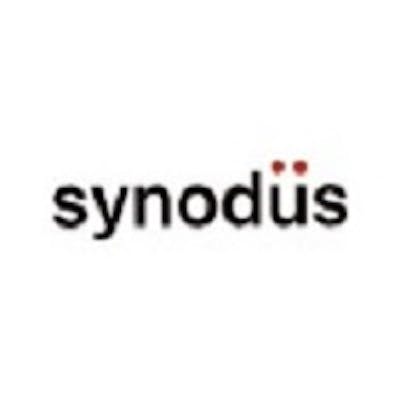Custom software can be a game-changer for many businesses. Compared to Off-the-shelf software, custom is more flexible, scalable and high-performance. But the cost and process of building it can be a constraint for many businesses, making them question if it’s worth a shot.
In this article, let’s learn the value of custom software through real case study and what you can learn to make your case successful.
Unilever: Automatic Production System
The Unilever Factory in Vietnam, employing approximately 1,400 workers, is one of the most efficient manufacturers in the region. To further enhance their production line performance and accuracy, the company soon developed a production planning and automated weighing system.
Working with Synodus - a software development company, the team built said system with machine learning, AI, and IoT. The chosen technologies excel in analytics and forecasts, allowing executives to make timely decisions. The automated weighing system, using AI and camera sensors, accurately detects truck positions, ensuring precision and security.
After six months of implementing these custom solutions, Unilever saw remarkable improvements: a 10% reduction in changeover costs, an 80% decrease in administrative production planning time, streamlined truck inspections, and enhanced data accuracy.
BlackBerry: Product Quality Testing Software
To create a high-quality product, Blackberry utilizes an advanced web-based test management tool to detect faults and gather data from malfunctioning devices when product testing, allowing for swift bug identification and isolation before product launches.
This commitment to speed and accuracy through custom software set BlackBerry apart. The strategy enabled BlackBerry to consistently deliver updates, meeting the diverse needs of global carriers and underscoring the role of custom software in enhancing product quality.
Habeco: Merchant Management System
Habeco, Vietnam's third-largest beer supplier, faced challenges with its loyalty program due to a lack of visibility into merchant operations and customer interactions.
To address this, Habeco collaborated with Synodus to develop custom software incorporating Machine Learning, IoT, and AI. This solution enhanced Habeco's control over loyalty programs and improved direct communication with merchants.
As a result, Habeco not only strengthened its relationships with merchants and maximized ROI but also significantly increased customer retention and sales by enabling timely support for merchants in leveraging the loyalty campaign.
Air Canada: Ticketing System
Moving out of outdated legacy system, Air Canada transformed its operational efficiency and revenue management with a custom ticketing and financial application.
This innovative software introduced an advanced ticket-pricing model across its sales network, integrating with back-office functions for superior revenue management and financial reporting. At the same time, it can manage agency commissions, ensuring consistency across sales channels and granting Air Canada precise profitability control.
This strategic move towards custom software not only kept Air Canada competitive but also enhanced its operational flexibility and strategic revenue management, demonstrating the significant advantages of custom software for scalability and adaptability in a dynamic industry.
Alibaba: eCommerce Website
Alibaba, a titan in digital commerce, achieved global success by strategically outsourcing its website development. Back in 1999, this was an unconventional move for a Chinese company, which is usually known to fond of domestic's manpower.
To break into the global market, Alibaba needed to create a web platform appealing to global users and can handle a large amount of data at once. There wasn’t an adequate partner in China, so Alibaba decided to scout U.S. developers. This decision wasn't just about outsourcing but accessing specialized skills essential for building the world's largest online marketplace.
This strategic choice led to Alibaba's phenomenal growth, with revenues hitting approximately $56.152 billion by 2019, demonstrating the power of transcending geographical limits and the transformative potential of strategic outsourcing in becoming a global leader.
Comprehensive Hospital Information System
A healthcare services business was burdened with paperwork and sluggish process. They decided to digitally transform their operations with a bespoke Hospital Information System:
The software uses digital medical records, enhancing data security and reducing information loss.
It also featured a Master Patient Index (MPI) to prevent document duplication and claim denials, streamlining processes for medical staff, reducing overtime, and increasing accuracy.
Additionally, there is a patient self-service portal for accessing test results, health data, and appointment booking, significantly enhancing patient engagement and satisfaction within months of implementation.
This custom software success story highlights the potential for tailored solutions to meet specific organizational needs, leading to more efficient operations and improved user experiences.
These are just among thousands of successful custom software development examples. Read on to learn more and take some tips on how to make your project create real results.
When executed right, custom software can create competitive advantage. Having a solution that best matched your business model is a decent sidekick tool that can’t be found anywhere in the market. This is why companies from small size to enterprise-grade have adopted customization for many years.
